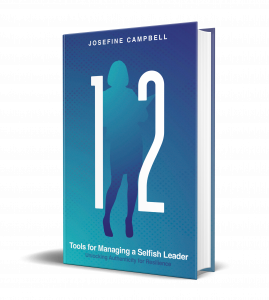
Share This Post
It’s always a big step to recognize that you’re seriously stressed. Stress itself is a survival instinct that has been overactive for too long. So, it’s in the nature of stress that you just want to try overcoming instead of “giving in”. That is why it’s very hard to give yourself the peace of mind you actually need to feel good again.
Anyone can get stressed – even strong people. Often, I see very mentally strong people who have been carrying on something heavy for several years than what others would be able to handle. It can be a leader who has compromised his fundamental values for a number of years, such as being together with his children, being a good teammate to his colleagues or delivering quality.
Then, when where there is no more energy to give, one of the difficult exercises is to brief one’s surroundings. And this must be done extensively otherwise, the surroundings don’t know how to proceed. It is easier to be on sick leave with a broken leg than with stress, since anyone and everyone can see the bandage and knows how the healing process works. Therefore, one should brief more clearly when suffering from stress. You can read an article about the topic here.
What is severe stress?
When stressed, the brain and nervous system are overloaded. You can compare it to a sprain. Imagine that your brain and nervous system could be sprained. Then it just needs rest to regenerate.
To regenerate, avoid being put in stressful situations so that your nervous system can calm down. It takes a lot less to stress you out when you’re stressed than when you’re not. One manager I work with explained it as, “Before, I was a whole drinking glass, now I’m just like a thimble.”
Right now you need to avoid stress loads. In practice, stress load has many faces. There may be people who are difficult to cooperate with, a form of organization that is impossible to work in, poor working environment, etc. But also, at home you can be stressed about others and yourself, or for example the pressure you put on yourself of how much you have to participate in – socially. Therefore, it is a good idea to participate in social events as little as possible during the period when you need to recover – whether it is during a sick leave or a period where you try to get back on top while working.
What is ok to do when you have stress?
If you haven’t tried having severe stressed before, it can be difficult to figure out what to do and what not to do. That’s why I often get the question; “What can I do?” So, here’s an inspiration list of 12 things that must wait until you feel better:
- Go on a healthy diet or detox.
- Painting the kitchen and building something finished in the house.
- Arranging a bachelor party for a good friend.
- Go to parties and attend social events.
- Large clean ups.
- Do a lot of activities with the kids.
- Find your passion in 4 weeks.
- Be available to the workplace or others.
- Moving for your mother.
- Work from home.
- An evaluation of your stress state every week.
- Run marathons or extreme training passes in other ways.
There is great disagreement among stress consultants whether you should exercise when you are severely stressed because you also activate the sympathetic nervous system and produce stress hormones when you exercise. My view is that only light exercises for those who are already fit is advisable – and if it doesn’t drag on its own, you’d better stay without it.
Our vision is to help people to not just perform but, sparkle. This, by unlocking the power of personal energy in all organizations to create long-term value in a sustainable way.
If you would like to be updated with new articles and videos, sign up for our mailing list. Your mail is not shared with anyone and there are advantages to being on the list e.g., getting a mini course in your personal leadership.












